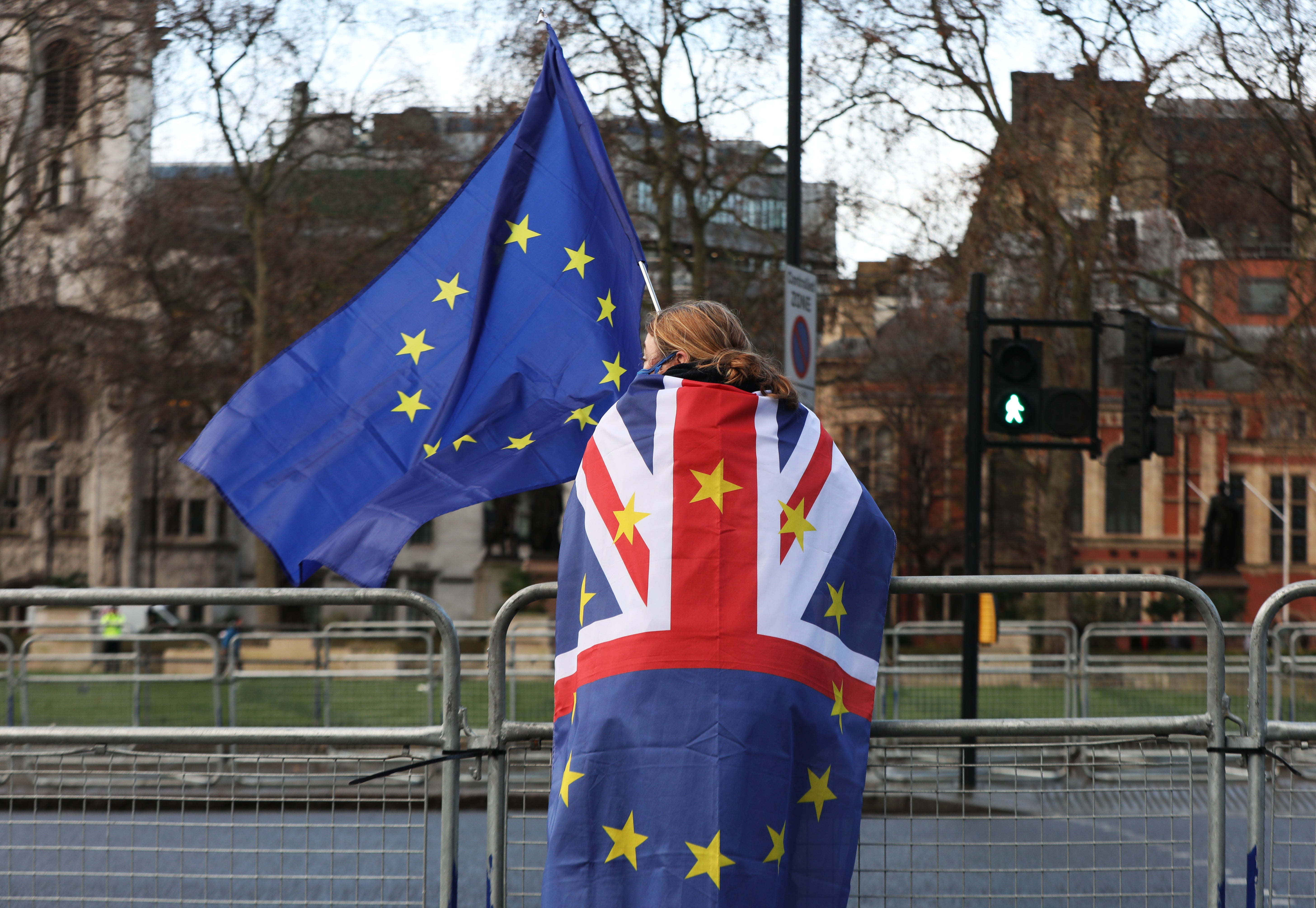Brexit overtakes Covid as the British public’s biggest concern
Impact of quitting EU has become top issue facing the nation, survey finds

Your support helps us to tell the story
From reproductive rights to climate change to Big Tech, The Independent is on the ground when the story is developing. Whether it's investigating the financials of Elon Musk's pro-Trump PAC or producing our latest documentary, 'The A Word', which shines a light on the American women fighting for reproductive rights, we know how important it is to parse out the facts from the messaging.
At such a critical moment in US history, we need reporters on the ground. Your donation allows us to keep sending journalists to speak to both sides of the story.
The Independent is trusted by Americans across the entire political spectrum. And unlike many other quality news outlets, we choose not to lock Americans out of our reporting and analysis with paywalls. We believe quality journalism should be available to everyone, paid for by those who can afford it.
Your support makes all the difference.Brexit has overtaken Covid as the number one concern of the British people for the first time since the pandemic began, new polling has found.
The supply chain crisis which has seen labour shortages and empty supermarket shelves has pushed the impact of the UK-EU divorce back to the forefront of the public imagination.
Some 28 per cent of people said Brexit is the biggest issue facing the nation – a rise of eight per cent since last month, according to the latest Ipsos MORI survey.
There has been a significant dip in the proportion who see Covid as a major issue for the country – only 27 per cent now considerate it the most important concern, down ten points from September.
It comes as chancellor Rishi Sunak laughed off warnings from his own budget watchdog that Brexit was causing serious damage to the British economy.
The chairman of the UK’s fiscal watchdog said on Thursday that the impact of Brexit on the UK economy will be worse than that caused by the pandemic.
Richard Hughes said the Office for Budget Responsibility (OBR) had assumed the impact of the UK leaving the EU would “reduce our long run GDP by around 4 per cent”.
He also told BBC: “We think that the effect of the pandemic will reduce that (GDP) output by a further 2 per cent.”
But Mr Sunak dismissed warnings from his own budget watchdog. The chancellor claimed Britain’s departure from the EU was “five years ago” and said the government was capitalising on benefits of the UK departure.
“What I’m doing is making sure that we capitalise on the opportunities that Brexit has brought,” Mr Sunak claimed. “We’re seeing the benefits that [it] will bring to the economy, and our ability to sign trade deals around the country.”
Asked about the official assessment on Brexit impacts, No 10 insisted that exiting the EU had given the government greater powers to boost the British economy.
Asked on Thursday whether a 4 per cent long-term cut to GDP was a price worth paying for Brexit, Boris Johnson’s spokesman said the Budget had shown the “agility, flexibility and freedom” the UK now had after the EU divorce.
Brexit rows with EU leaders have also intensified again in recent days. Mr Johnson’s government is asking for further talks with French and EU officials over the reasons for UK trawler has been detained by France.
Ministers have condemned France’s seizure of a British fishing boat in French waters as “disproportionate” in a dispute over post-Brexit fishing rights that risks spinning out of control.
And the leader of the DUP leader said talks between the UK and EU on the contentious Irish Sea trade border need to reach resolution “very, very soon”.
Sir Jeffrey has warned that he will pull down power-sharing arrangements at Stormont if significant changes to the Northern Ireland protocol are not secured by early November.
Brexit is seen to be a far bigger concern by Labour supporters over Conservatives (35 per cent to 17 per cent), the Ipsos MORI poll found.
Meanwhile, worries about the economy and pollution also feature close to the top of public concerns (26 per cent and 24 per cent respectively).
Worry about the NHS has fallen seven points since last month, but on 23 per cent it remains one of the major issues for voters.
Subscribe to Independent Premium to bookmark this article
Want to bookmark your favourite articles and stories to read or reference later? Start your Independent Premium subscription today.
Join our commenting forum
Join thought-provoking conversations, follow other Independent readers and see their replies
Comments